Flight attendants are the unsung heroes of the skies, ensuring our safety and comfort thousands of feet above the ground. However, they’ve seen their fair share of behaviors that make their job challenging. In this article, we delve into 20 passenger behaviors that drive flight attendants nuts, as shared by the flight crew themselves. From ignoring safety instructions to being rude, these behaviors disrupt not only the flight attendants’ duties but also the overall travel experience for everyone on board. Let’s explore these behaviors and understand why they should be avoided.
1. Ignoring Safety Instructions
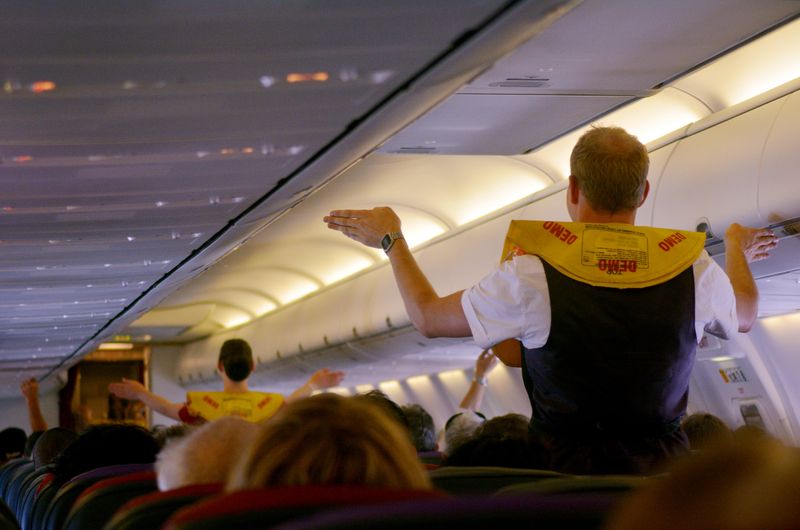
“Please pay attention to the safety demonstration.” Yet, there are always those passengers who are too engrossed in their gadgets. A flight attendant once shared a story of a passenger who was so busy texting that they missed crucial safety information. Imagine being responsible for hundreds of lives and having them disregard vital instructions. This behavior not only jeopardizes personal safety but also shows a lack of respect for the crew doing their job. It’s not just about fastening your seatbelt; it’s about knowing what to do in an emergency.
2. Overhead Bin Battles
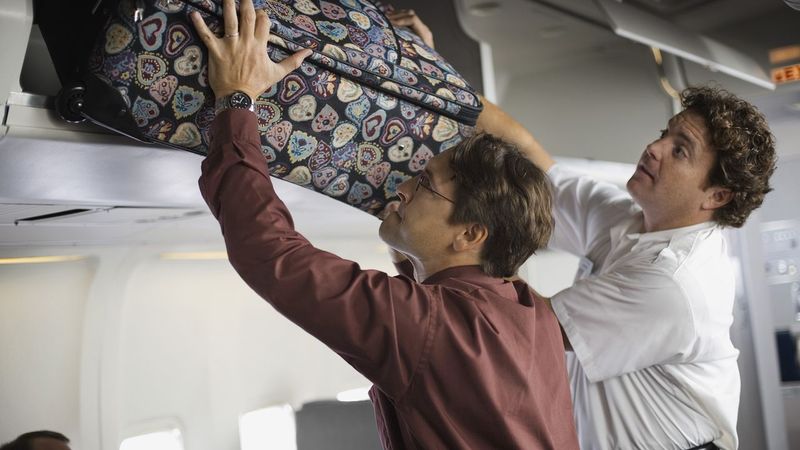
Overhead bin space is limited, leading to intense battles over real estate for carry-ons. Picture this: a passenger trying to stuff an oversized bag into an obviously full bin, causing chaos and delays. Flight attendants frequently mediate these disputes, ensuring everyone has space. One attendant recalls a time when multiple passengers argued over who had rights to a specific bin spot. Such behavior not only slows down boarding but also creates unnecessary tension. It’s a reminder to pack thoughtfully and respect shared spaces.
3. Ignoring Seatbelt Signs
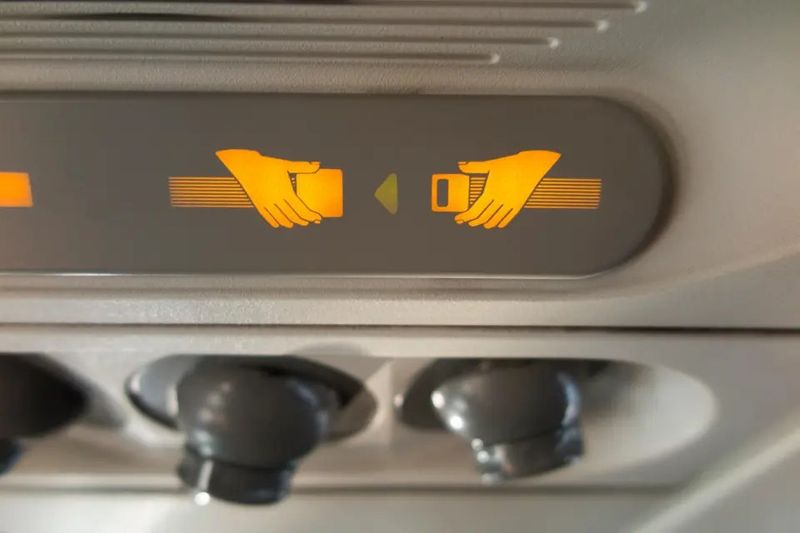
“The seatbelt sign is on for a reason,” a flight attendant mentioned, recalling an incident where turbulence hit unexpectedly. Passengers often underestimate the importance of this rule. Imagine standing during a turbulent patch, risking injury not only to yourself but also to others. Flight attendants are tasked with enforcing these signs, and non-compliance can lead to dangerous situations. Ignoring the seatbelt sign shows a disregard for safety protocols designed to protect everyone onboard.
4. Rushing to the Exit
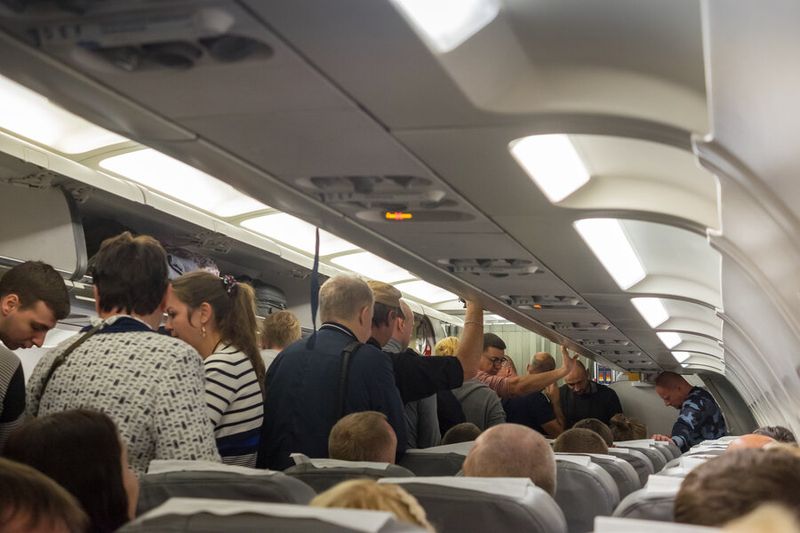
As soon as the wheels touch the ground, some passengers leap from their seats, causing a bottleneck near the exit doors. One flight attendant shared an incident where a hasty passenger almost knocked over an elderly traveler. This rush disregards the orderly and safe disembarkation process. The eagerness to exit can compromise safety and comfort for everyone. It’s crucial to wait your turn and ensure a smooth exit, respecting both the crew and fellow travelers.
5. Seat Recline Wars
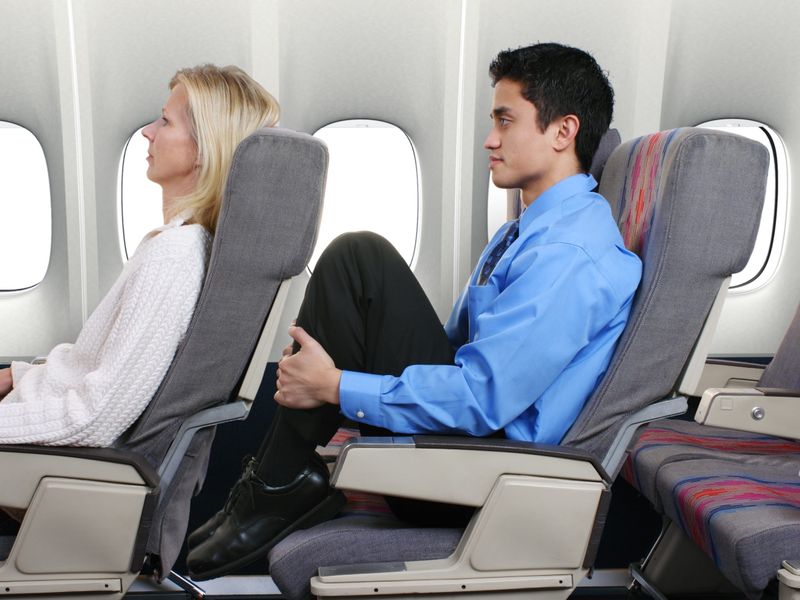
Seat space is precious, and reclining seats can ignite tensions. A flight attendant recalled a flight where two passengers argued for hours over a reclined seat. This behavior not only disturbs peace but also affects everyone nearby. Reclining should be done considerately, keeping the comfort of others in mind. It’s about finding a balance between personal comfort and respecting shared space. Understanding and communication can prevent these common in-flight disputes.
6. Unruly Children
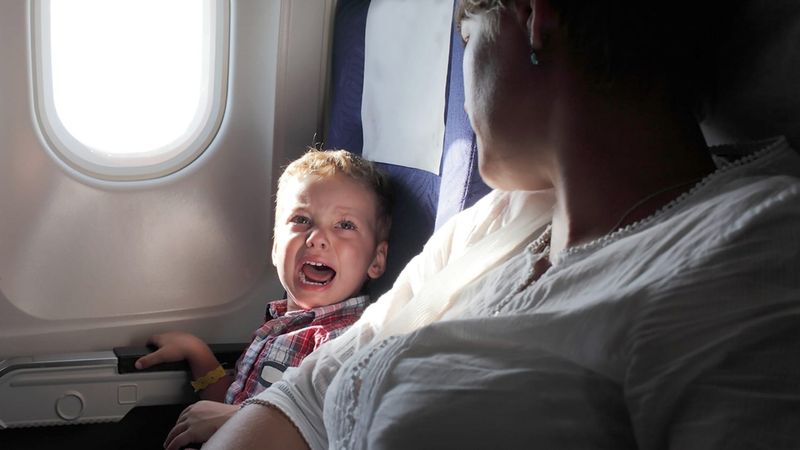
Children can be unpredictable, and their antics often test the patience of both flight attendants and fellow passengers. One attendant shared an experience with a child who threw a tantrum for the entire flight. While young travelers can be challenging, it’s essential to manage their behavior to maintain a peaceful environment. Parents should come prepared with activities and snacks to keep kids occupied. Flight attendants appreciate proactive parents who attempt to control their children’s behavior.
7. Excessive Complaints
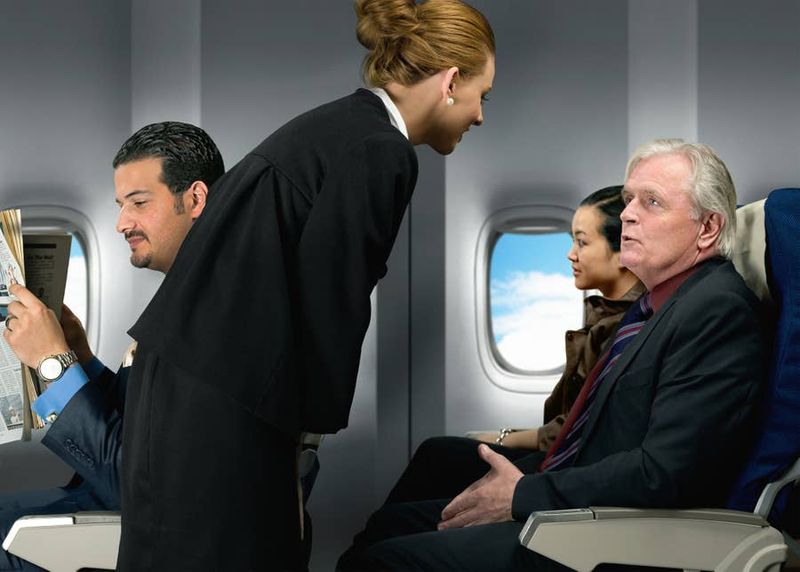
Every flight comes with its own set of challenges. However, some passengers take complaining to an art form, voicing dissatisfaction over every minor inconvenience. A flight attendant recounted an experience with a passenger who complained non-stop about the noise and temperature. While feedback is important, excessive complaints can wear down the crew. It’s crucial to have patience and acknowledge the hard work of flight attendants who strive to make the journey pleasant.
8. Inappropriate Attire

What you wear on a flight matters. A flight attendant once dealt with a passenger dressed inappropriately for the cabin environment, causing discomfort for others. Airplanes are public spaces, and attire should reflect respect for fellow travelers. Inappropriate clothing can lead to awkward situations and complaints. Dressing considerately ensures a comfortable atmosphere for everyone. Flight attendants often remind passengers of dress codes to maintain decorum onboard.
9. Aisle Blockers
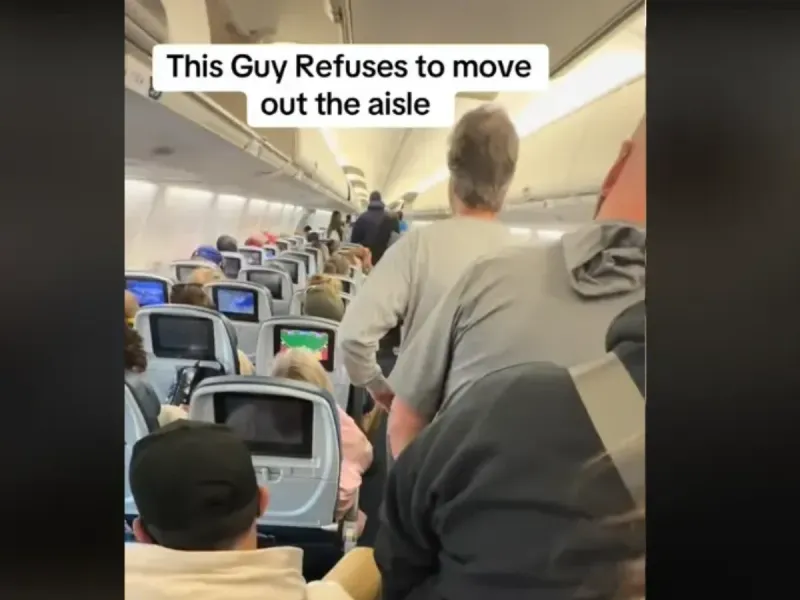
Aisle space is limited and crucial for smooth service and access. One flight attendant narrated a story of a passenger who stood in the aisle, blocking food service and causing inconvenience to others. Blocking the aisle not only delays service but also raises safety concerns. It’s vital to stow your belongings promptly and remain seated unless necessary. Respecting aisle space ensures efficiency and comfort for both the crew and passengers.
10. Frequent Lavatory Visits
Lavatory lines can become lengthy, especially on long flights. Excessive visits cause inconvenience and delay for others. A flight attendant shared an instance where a passenger visited the lavatory multiple times within an hour, creating a queue and frustration among fellow travelers. Being mindful of lavatory usage helps in maintaining a smooth flow for all passengers. It’s courteous to minimize visits and avoid congregating near the lavatories, respecting shared space and comfort.
11. Ignoring Crew Instructions
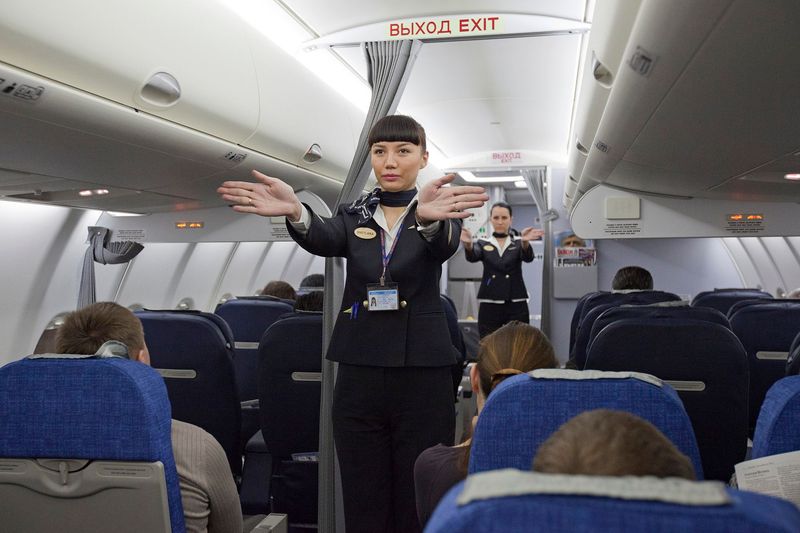
Flight attendants’ instructions are vital for a safe journey. Yet, some passengers choose to ignore these directives. Imagine being in charge of passenger safety and having them disregard your guidance. A flight attendant recalled a passenger who ignored instructions to fasten their seatbelt during turbulence, endangering themselves and others. Compliance with crew instructions ensures everyone’s safety and a smoother flight experience. Ignoring these directions can have serious consequences.
12. Seat Hogs
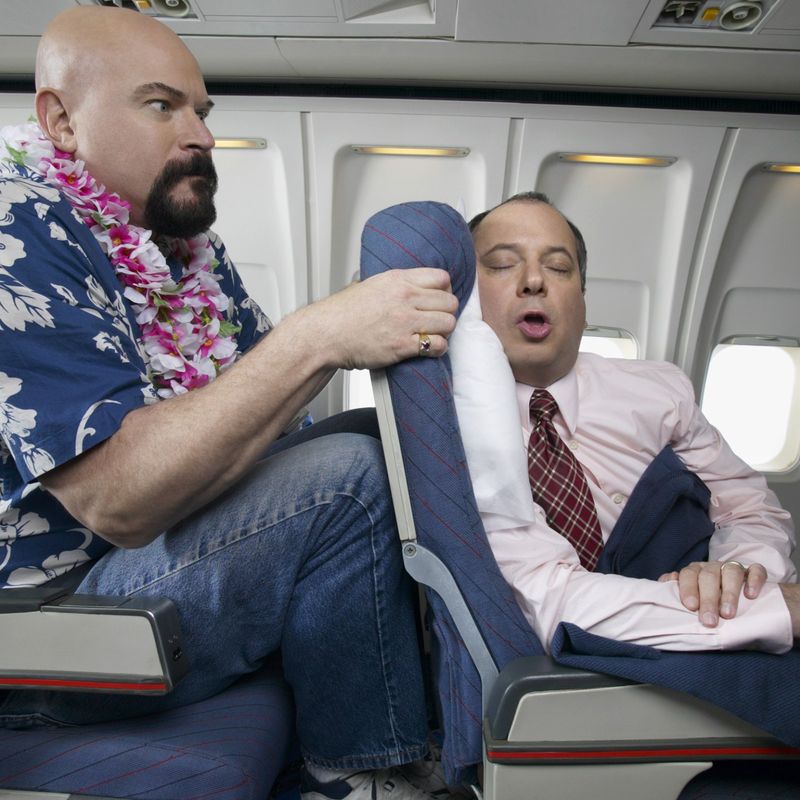
Space on a plane is a luxury, and seat hogging is a common annoyance. A flight attendant once had to intervene when a passenger occupied multiple seats, refusing to share armrests. Such behavior disrupts the comfort of others, leading to stress and complaints. Respecting personal space is crucial in a shared environment like an airplane. Sharing armrests and keeping within your seat boundaries ensures a harmonious travel experience.
13. In-flight Grooming
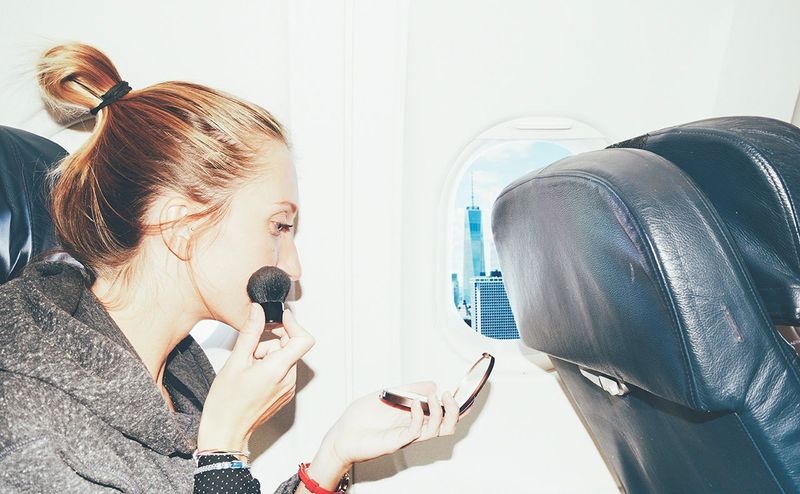
The confines of an airplane are not suitable for personal grooming activities. A flight attendant shared an encounter with a passenger clipping their nails mid-flight, causing discomfort to those around. Such actions are not only unhygienic but inconsiderate. Grooming should be done privately, respecting the shared space. Avoiding strong fragrances and maintaining personal hygiene keeps the cabin environment pleasant for everyone. Flight attendants often remind passengers about appropriate in-flight behavior.
14. Loud Conversations
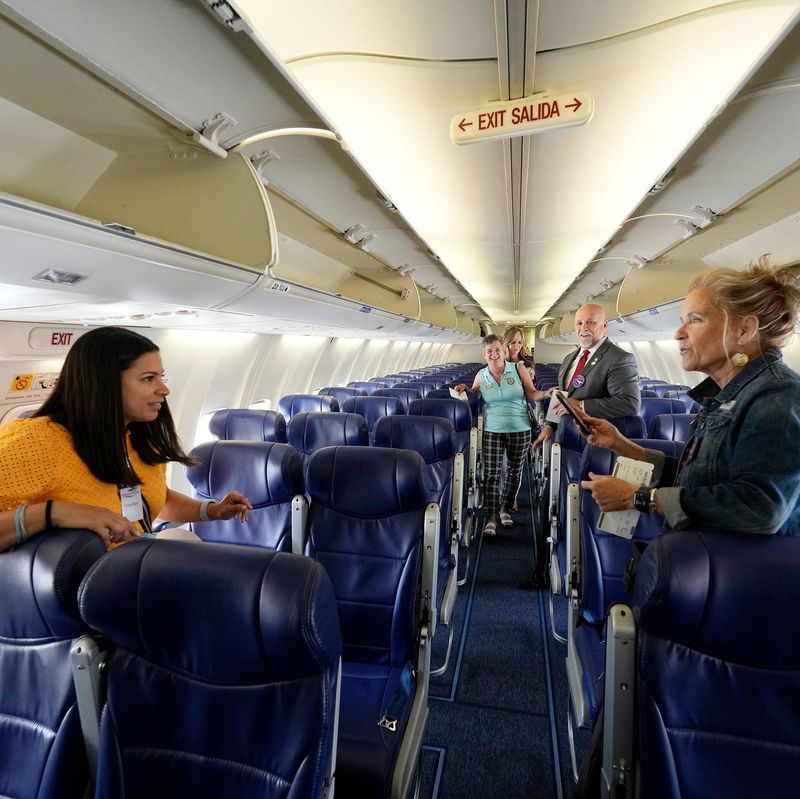
An airplane is a shared space, and noise levels should be considerate of others. A flight attendant recounted a flight where a group of passengers engaged in loud conversations, disturbing those trying to rest. Such behavior can lead to complaints and tension among travelers. Keeping voices down and being mindful of others’ comfort is key. Flight attendants appreciate passengers who maintain a respectful noise level, contributing to a harmonious travel experience.
15. Overindulgence in Alcohol

Alcohol consumption can quickly get out of hand in the skies. A flight attendant once had to manage a passenger who overindulged, becoming disruptive and uncooperative. Excessive drinking not only risks personal health but also affects others’ comfort and safety. Flight attendants are trained to handle such situations, but prevention is key. Moderation ensures a pleasant journey for everyone involved. Respecting alcohol limits and being mindful of behavior helps maintain a safe and enjoyable flight.
16. Unpacking Bags Mid-flight
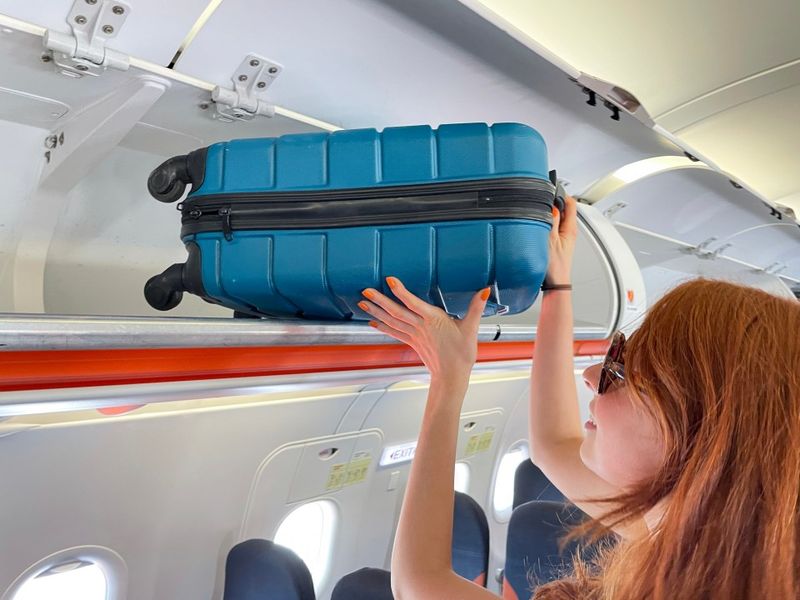
Unpacking overhead bags during flight can be disruptive. One flight attendant recalled a passenger who continuously rummaged through their bag, causing noise and inconvenience. Such actions can disturb nearby passengers and obstruct aisle space. It’s advisable to keep essential items within reach to minimize disturbance. Respecting the cabin’s shared environment ensures a smoother experience for everyone. Flight attendants often remind passengers to plan ahead and keep the aisles clear.
17. In-flight Yoga or Exercises
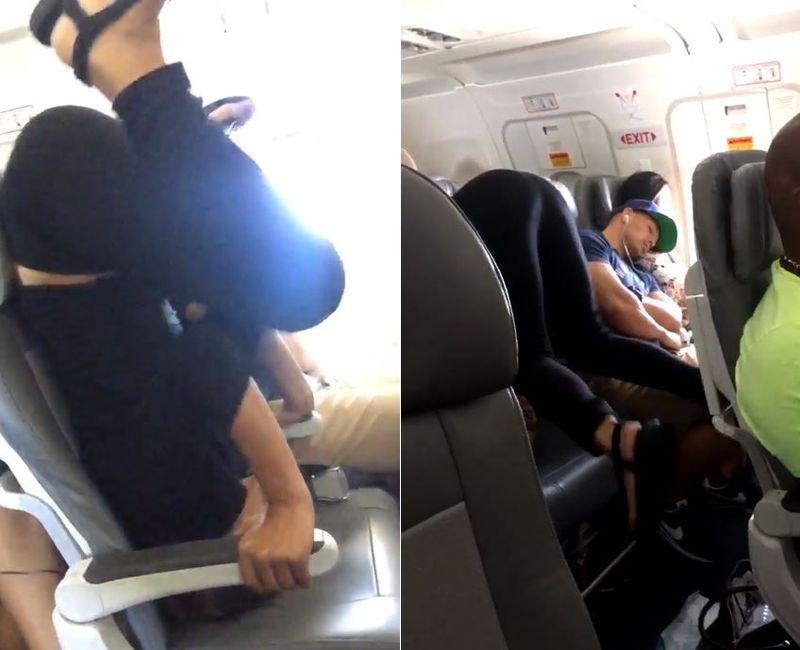
While staying limber during long flights is important, the aisle is not the place for exercise routines. A flight attendant once managed a passenger trying yoga poses in the aisle, blocking access and causing safety concerns. Such activities are better suited for designated areas or can be done subtly at one’s seat. Being considerate of space and safety ensures everyone can move freely and comfortably. Flight attendants encourage passengers to stretch responsibly and respect shared space.
18. Electronics Misuse
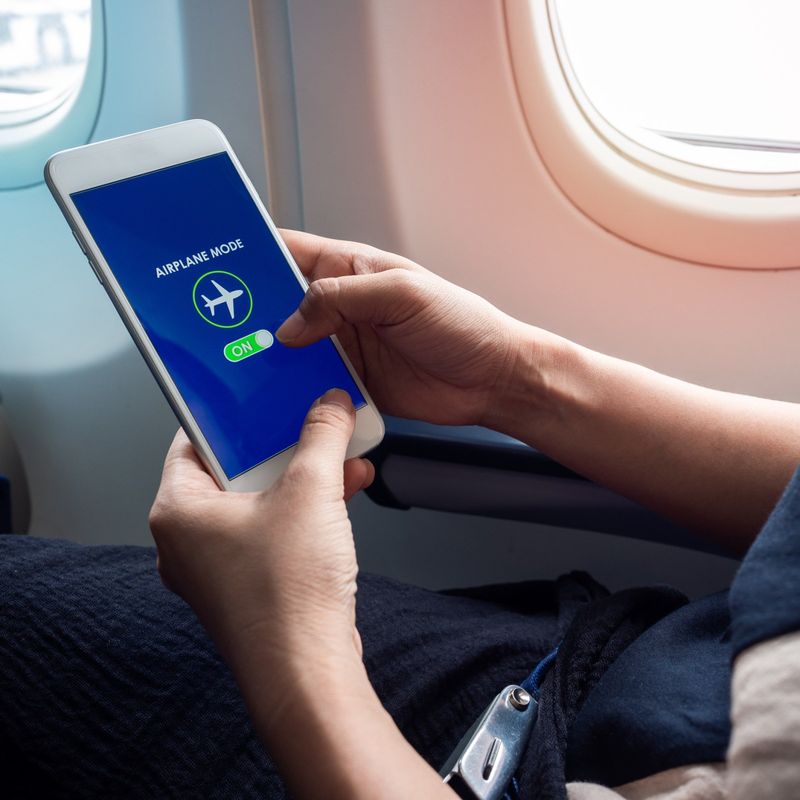
The use of electronics on flights is strictly regulated for a reason. A flight attendant recalled a passenger who ignored repeated instructions to switch their device to airplane mode, potentially interfering with aircraft systems. Misusing electronics can have serious implications for safety and communication. Following crew advice and using devices responsibly ensures compliance with airline regulations. Passengers are urged to adhere to electronic guidelines for a safe and disturbance-free flight.
19. Unwanted Conversations
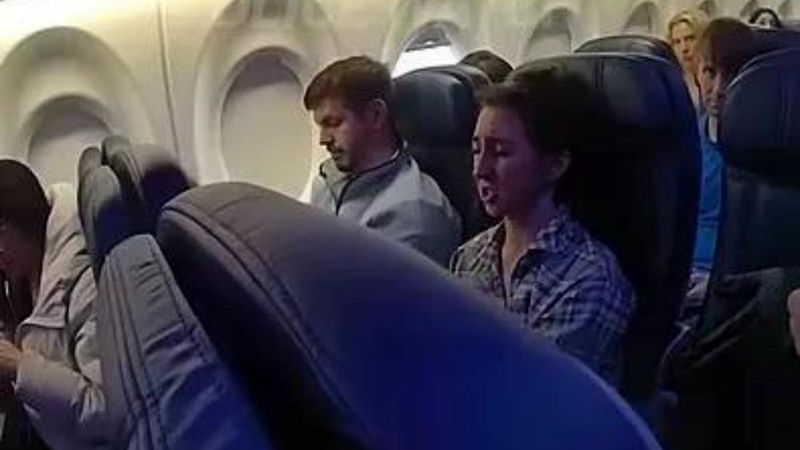
Some passengers cherish flight time as a quiet retreat. Unwanted conversations can disrupt personal space and comfort. A flight attendant narrated an incident where a passenger persistently engaged another in chat despite visible disinterest. Respecting personal boundaries is essential in a shared environment. Observing social cues and allowing for personal time ensures everyone can enjoy the journey in their own way. Flight attendants often mediate such interactions to maintain a peaceful cabin atmosphere.
20. Misuse of Call Button
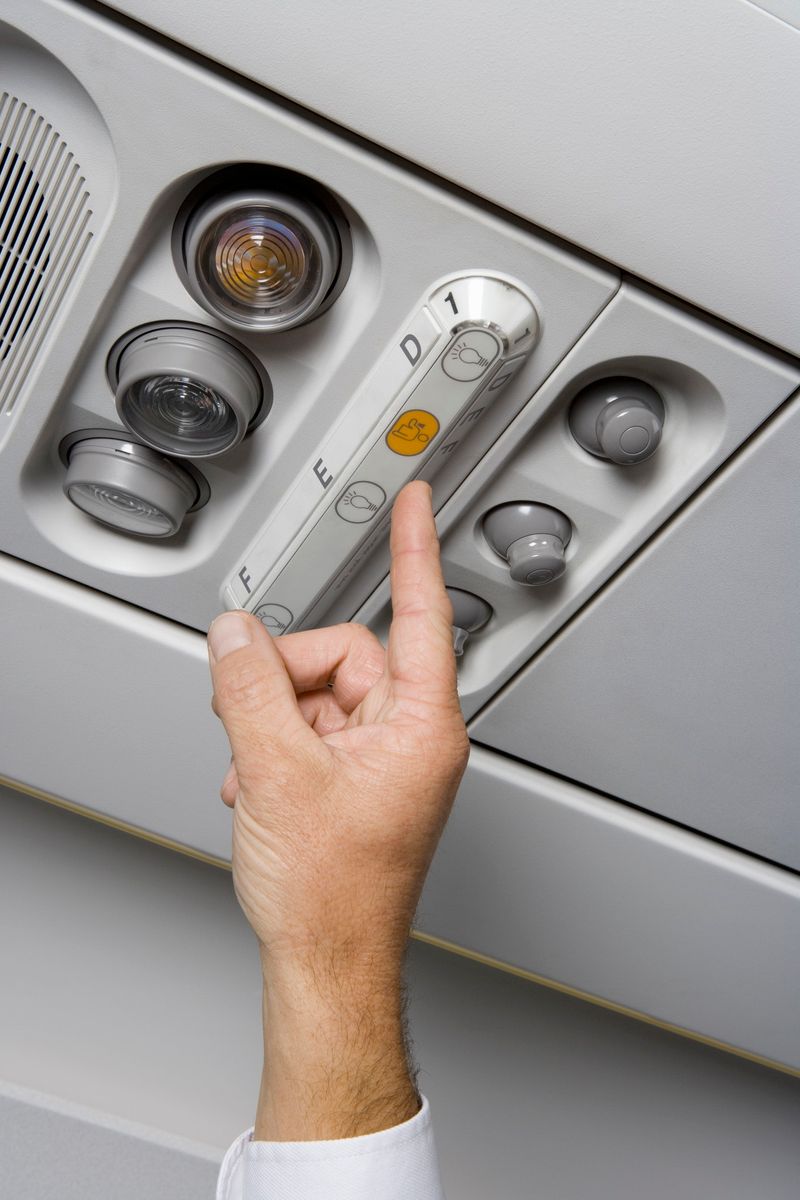
The call button is for urgent needs, yet some passengers misuse it for trivial requests. A flight attendant shared an experience with a passenger who incessantly pressed the call button for minor preferences, distracting the crew from essential tasks. Understanding the purpose of the call button ensures it’s available for genuine emergencies. Passengers are encouraged to assess the urgency of their needs and use the call button considerately, respecting the flight attendants’ responsibilities.



